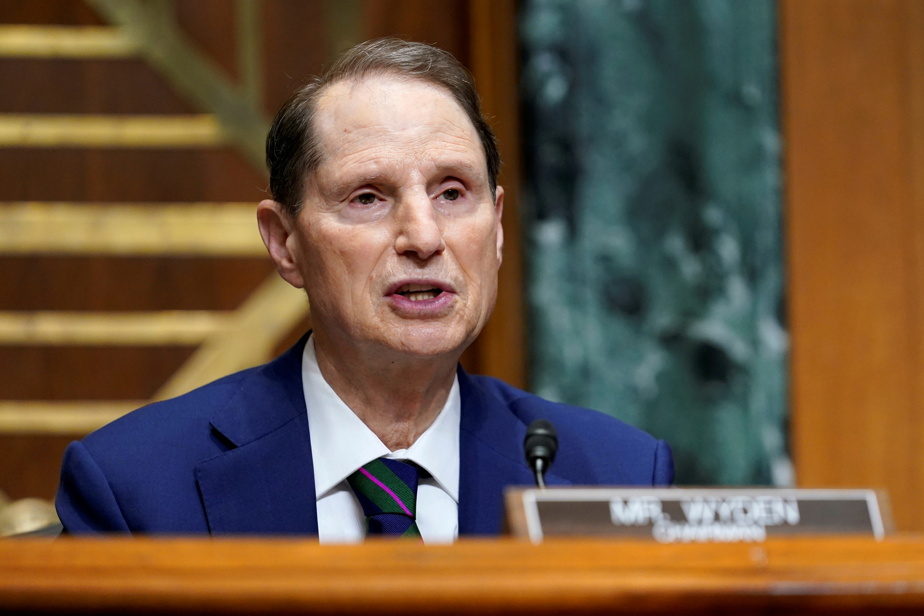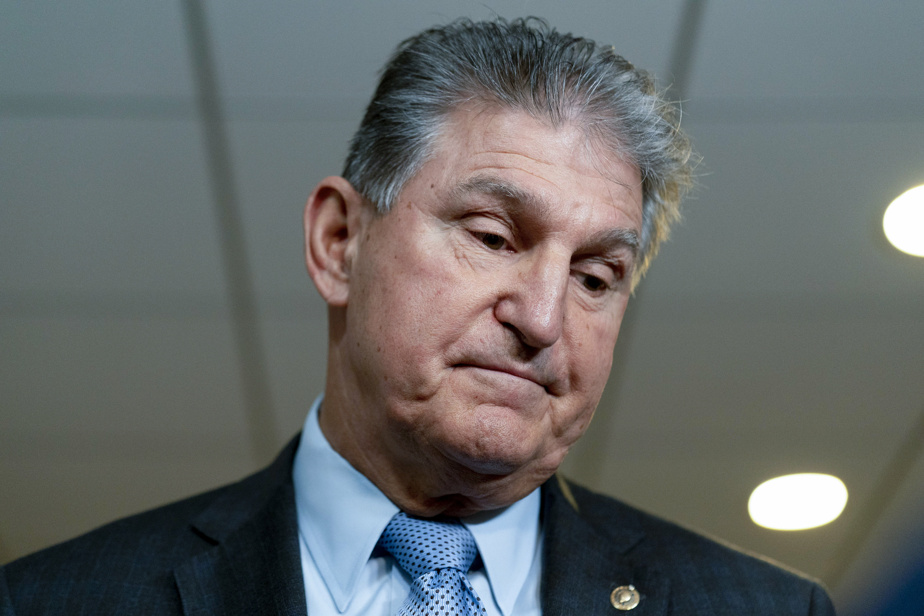(Washington) US Democrats were playing hard on Wednesday in Congress: They want to get an agreement on Joe Biden’s investment plans before he leaves for the G-20 and COP26 in Europe, so they have less than 24 hours to approve them.
The US president hopes to be able to present to his international partners an image of the United States engaged in energy transition, growth, but also in the fight against social inequality and tax evasion.
Therefore, it is a race against time in which Congress is involved to try to unite all parties of the Democratic Party and get an agreement, before Joe Biden leaves Thursday for Rome (Italy) and then Glasgow (Scotland).

Photo by Susan Walsh, Reuters Archives
Democratic Senator Ron Wyden, Chairman of the US Senate Finance Committee.
“The agreement is within reach and we hope to have a framework for an agreement by the end of the day,” Senate Democratic Leader Chuck Schumer said Wednesday afternoon.
To help fund these massive investment plans, which could total about $3 trillion over the next eight to 10 years, the outlines of a tax on the super-rich were presented on Wednesday.
“The billionaire’s income tax will apply to about 700 taxpayers and raise hundreds of billions of dollars,” according to this new proposal by Democratic Senator Ron Wyden, chair of the US Senate Finance Committee.
This would ensure that “the country’s richest people pay their fair share (to fund) historic investments in childcare, paid leave and combating the climate crisis,” she added.
The big news is that unrealized capital gains are being taxed, these idle gains in the thick portfolios of the stocks of the great American fortunes.
“some richer”
Ron Wyden’s text specifies that “the proposal will cover only taxpayers with annual income of more than $100 million or more than $1 billion in assets over three consecutive years.”
According to US media, the tax rate used will be 23.8%.
Today, a wealthy shareholder like Elon Musk, the president of Tesla, or Jeff Bezos, the founder of Amazon, doesn’t pay a tax on these unrealized capital gains arguing that those gains don’t exist as long as they aren’t actually spent.
The “wealthier few” can escape taxes by holding these assets indefinitely which nevertheless allow them to borrow and finance their lifestyle, justifying the text, noting the possibility of buying luxury homes, yachts, etc., by affirming these assets as collateral with banks.
“As a result, the middle class, and families who derive their income from their wages may face higher tax rates than billionaires,” the text deplores.
The question now is whether this proposal will win the support of centrist Democratic senators, particularly Kirsten Senema, who oppose raising taxes.

Photo by Andrew Harnick, Associate Journalist
Democratic Senator Joe Manchin seemed reluctant to vote for a bill that would tax the very wealthy.
His colleague Joe Manchin, also a centrist, seemed reluctant to impose such a tax. “I don’t like the suggestion that we target different people […] that contribute to society and create a lot of jobs.”
However, its role is crucial in these negotiations, the Democratic majority in the Senate is so weak that the party has to make sure it gets all the votes without exception.
Agreement “soon”?
The 15% minimum tax on multinationals, which should affect about 200 companies, mainly in the technology sector, and also help fund spending programmes, is also back in center stage.
Kyrsten Sinema supports this minimum tax, considering it “a logical step to ensure highly profitable businesses.” […] Pay a reasonable minimum tax on their earnings.
Funding the plans is the subject of heated debate within the Democratic Party.
Democrats are working on two 8- to 10-year programs: one relating to investments worth $1.2 trillion to modernize infrastructure. The other is in favor of social and environmental measures amounting to about $2 trillion.
Joe Biden argues that these plans will make it possible to deeply reform the country while ensuring long-term growth.
The Republican opposition, for its part, accuses Joe Biden’s economic policy of inflation, and warned Tuesday of a continuous rise in prices if investment plans are adopted.

“Extreme twitteraholic. Passionate travel nerd. Hardcore zombie trailblazer. Web fanatic. Evil bacon geek.”

